The Report Politburo 2.0: opinions of political strategists and political analysts
The reports on ‘’the Kremlin towers’’ hit the top Yandex.Novosti two times last week
The communication group Minchenko Consulting has recently published its another report Politburo 2.0, this time with the title ''Renovation instead of dismantling''. According to the authors, this work aims to ''give a retrospective of internal processes in the Russian elite over the past five years, during the third presidential term of Vladimir Putin and on the threshold of his possible fourth.''
According to the report, the most stable position in this ''collegial body'' belongs to Dmitry Medvedev — he is the number one contender for leadership of the Cabinet in the future. The contender ''number two'' is Sergey Sobyanin. Sergey Shoygu has strong enough position, as well as Sergey Chemezov, expanding his influence ''dynamically''. But the position of Igor Sechin, Vyacheslav Volodin and Arkady Rotenberg, according to the analysts of the group, may shake after the presidential elections in March 2018.
We present to your attention the review of the comments on the report from the community of political experts and political strategists.
-
-
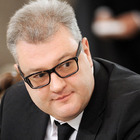
Dmitry Orlov political expert, political strategist, CEO of Agency for political and economic communications (APEK)
-
''Successors'', ''Politburo'' and a new elite. Five points
- In order to predict the processes in the elite, one has to be at least a visionary. That is, to see not only static also but dynamic, to strive to understand what the political system will be as well as under the influence of what factors the new elite will form. Gleb Pavlovsky in the late 90s-beginning of the 00s was such a visionary. Minchenko and Vinogradov are absolutely not visionaries. To take the well-known pack and to play solitaire, giving explanations in the logic of ''X will extremely strengthen, so under pressure from other elite groups after the elections in 2018 it'll be weakened'' or ''the top 20 successors is boring, so I add Navalny for thrill, as well as Joker with him'' — not a great achievement.
- Once (the spring of 2011) I opposed Pavlovsky: the majority, serving as a pillar of the government and focusing on very specific policy (of Putin) is not transmitted by recommendations of analysts (by the way, in 2024, the majority, in my opinion, will remain Putin's, and this fact alone guarantees the president a major role in the political system). Our response to Minchenko and Vinogradov: in a monocentric political system (and the Russian political system is such), significant decisions, including personnel, were taken, are taken and will be taken by the president. The other players are dependent on him, and only some have some conditional autonomy. So the ''successors'' cannot build up in the ''rating'' based on the current influence or control over resources (this is pointless in principle, and especially five years before this topic will become really relevant), so there is no and won't be any ''ruling coalition'' or ''politburo''. There are no and won't be some ''conventions of equals''. Let's remember: even rapidly weakening Yeltsin in 1999 by a number of techniques managed to get rid of the figures, the influence of whom seemed to be unshakable. Putin is much stronger and almost infinitely free to make decisions.
- It is absurd to suggest that the president before the ''challenge 2024'' will not formulate and implement his own strategy for a renewal of the elites. He will: according to the administrative reform and reaction of Puttin to the ''challenge 2007'', for him it is important a development of the system as well as its overall dynamics. Therefore, the point ''the greatest benefits will belong to the player Y because he has his own project'' is fundamentally wrong. The greatest benefits will belong to the players who most correspond to the Putin's vision of what the new elite should be.
- I believe, the idea of Putin about the new elite has almost formed: rationality, efficiency, relative (political) young age, noncorruptness and low cost for the budget. Politicians, out of whom the candidates for leading positions will be selected must function — to perform efficiently their duties in the expectation of career growth. ''Noblepeople'', fed from ''principalities'' and concluding ''convention on non-aggression'' — it's the thing of the past. Moreover, Putin, in fact, has already started to implement the ''technocratic'' strategy for the renewal of the elites, it is strange to ignore it.
- What, in my opinion, should we discuss today concerning the renewal of the elites?
- The image of the future — ''the future with Putin'', ''the fair future'', ''the local future''.
- How the political system should develop.
- Institutional continuity.
- How the renewal of the ruling elite should happen — in accordance with the principles already declared by Putin.
- The current dynamics of influence of the elites and elite groups.
-
-
-
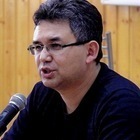
Abbas Gallyamov Political expert
-
Since today is the anniversary of the appearance of rumours about the transition of Volodin in the State Duma, I will continue this topic. Besides, the new report by Minchenko is about Politburo.
As well as the authors of the report, I also think that the growing influence of Volodin would decelerate next season. But not so much for the reason of the weakening of the executive functions of the lower house as a result of establishing full control over it. One can't weaken something that was not like this originally. In the end, the authorities had already had full control in previous terms of the Duma, so nothing has changed here.
If a weakening happens, it is only because Volodin himself too highly raised the bar. He is unlikely to repeat last year's breakthrough, when he suddenly breathed life into long-dead principle of separation of powers and transformed the Duma from the epididymis to the executive almost full-fledged political institution. Everyone has already accustomed to the new roles of the State Duma, and next season it will cease to be news. Of course, it will shift from the centre of the agenda to the periphery.
However, there may be one important ''but''. The Duma may be the beneficiary of the inevitable in the conditions of shrinking economy increasing number of social conflicts. The story of the renovation has shown that Volodin is able to moderate them. If he continues to do this, then the role of the Duma will not only weaken but strengthen. It is known that conflicts create the agenda.
That's the problem of Kiriyenko is. He turned out to be a hostage of the task of preparing for elections. Since their fate is sealed, this theme is not interesting for the society. The intrigue cannot be substituted with a search of the image of the future. If to compare this issue with the conflict over the renovation, it becomes even funny.
However, Kiriyenko also has a chance. He was associated with Navalny in a paradoxical way. The more active he is, the more excitement there will be around what response will be taken by the Kremlin.
In the end I want to note that in general the report well performs the function of import substitution. In a situation of rising demand for update it shows that an update is imminent: some members of Politburo will weaken, others will strengthen. The ruling class here has a feeling of adequacy of what is happening, ''What stagnation?! See how everything is dynamic and always changing!''
The only question is, whether such changes satisfy the voter.
-
-
-
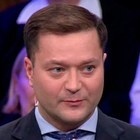
Nikita Isaev politician, economist, director of the Institute of contemporary economy
-
Yevgeny Minchenko has also presented his report on the balance of power in the towers of the Kremlin. Surprisingly, after just published ''the rating of the successors'' of Putin from Mikhail Vinogradov, the report by Minchenko also has entered the tops though I thought from the ongoing discussion the topic will be exhausted.
I do not want to analyze in detail these reports, and, in the end, the guys are political analysts, it is their job, not mine. I think it is right that they somehow have the information pressure on the Kremlin in the need to avoid the bleak scenario of the presidential election with the retired competitors, which is kind of almost already determined.
I think they succeed in it. The summer holidays are going to an end, and the ''successors'' and ''Politburo memebers'', having received such massive trolling from the top of Yandex, will begin an active struggle under the carpet, and it will stimulate competition in the public political field.
For political competition, external factors also well affect. But in this election, they will not have essential effect. They are not ready, and we still have some margin of safety.
-
-
-
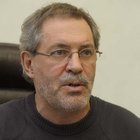
Mikhail Leontyev Vice President and Press Secretary of NK Rosneft PJSC
-
Arguments about the reasons for a possible influence decline of Igor Sechin after the election in 2018 are flimsy. I don't know if Yevgeny Minchenko is upset, but I have a doubt about the adequacy of his forecast. This megalomania — to place people in places. People without selfish thoughts and in their right mind cannot talk about the negative consequences of the claim against Sistema SSA for the investment climate in Russia.
-
-
-
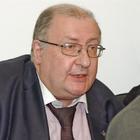
Viktor Militarev Publicist
-
In my opinion, Vladimir Putin himself decides. Yes, it's possible that his environment may deceive him in something — in the sense that they may limit his information. But, in the end, the president always can do it himself, to search information on the Internet, even though they say he doesn't really like it. But if he needs he can do it; after all, he is a smart man (I speak without any flattery), professionally trained to work with information.
So, not knowing what sources Minchenko Consulting has, I see this text as insufficiently substantiated. Yes, psychologically, what they write, for example, about Medvedev, may be true. Watching from the sidelines the relationship of Dmitry Medvedev and Vladimir Putin all these years, I admit that perhaps it is the way Putin treats Medvedev. It is psychologically plausible and such a conclusion can be done without sources. All the rest I don't understand. Why, for example, it is said that Medvedev can take the place of Sechin as the chief power energy minister. Where do Evgeny and his staff know that from?
When in the first editions of ''Politburo 2.0'' Minchenko and his colleagues discussed who is part of the ''collective Putin'', I could understand by what criteria they did it. Later, when they began to discuss which candidate to make members to the Politburo and whom send to candidates, this method of reasoning started to remind me the so-called ''American experts on Russia'', Sovietologists and Kremlinologists. They built their analysis on how people they studied were standing on the mausoleum. But then the society was at least strongly symbolic. Now it is not.
-